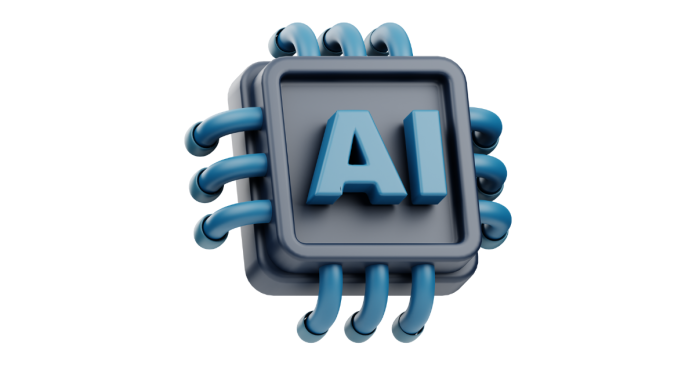An Expert System is a branch of Artificial Intelligence (AI) designed to simulate the decision-making ability of a human expert in solving specific problems. Expert systems are knowledge-based systems that use predefined rules and facts to provide solutions, predictions, and analyses. These systems are aimed at emulating the expertise and reasoning processes of specialists in various fields.
Key Components of an Expert System
- Knowledge Base
The knowledge base is the core of the expert system. It contains the facts, rules, and information that the system uses to make decisions. The knowledge base can be thought of as a specialized database where knowledge is stored in the form of facts and rules. - Inference Engine
The inference engine is the mechanism that processes the information in the knowledge base to draw conclusions. It applies logical reasoning techniques to the knowledge base to generate new information or solve problems.- Forward Chaining: A data-driven approach where facts are used to generate conclusions.
- Backward Chaining: A goal-driven approach where the system starts with a hypothesis and works backward to find supporting facts.
- User Interface
The user interface is the part of the system that allows users (human operators) to interact with the expert system. It provides a means for inputting information and receiving output in a user-friendly manner. - Explanation Facility
This component provides the reasoning behind the system’s decision. It explains why specific conclusions were made, helping users understand the thought process behind the output. - Knowledge Acquisition Subsystem
The knowledge acquisition subsystem allows experts to input new knowledge into the system, ensuring that it remains up to date with the latest information or changing conditions.
How Expert Systems Work
Expert systems operate in a way that mirrors the human thought process in making decisions:
- The user inputs a problem or query through the user interface.
- The system applies logical rules and draws on the knowledge base to generate possible solutions.
- The inference engine processes the information and arrives at a conclusion or recommendation.
- The system presents the result to the user through the interface, often with an explanation of how the conclusion was reached.
Types of Expert Systems
- Rule-Based Expert Systems
The most common type, these systems use a set of “if-then” rules to make decisions. Each rule defines a specific relationship between facts and conclusions. Examples include medical diagnostic systems, troubleshooting systems, and expert recommendation systems. - Model-Based Expert Systems
These systems use models of real-world situations to simulate the behavior of the system and provide solutions. They are typically used in areas like engineering design and system control. - Knowledge-Based Expert Systems
These systems rely on a large repository of knowledge that is structured in a formal way. Knowledge is represented through ontologies and semantic networks.
Applications of Expert Systems
- Medical Diagnosis
Expert systems are widely used in the medical field to diagnose diseases, recommend treatments, and assist doctors in decision-making. - Technical Support
Troubleshooting expert systems help users diagnose and fix issues with products like computers, machinery, or software. - Financial and Investment Advice
Expert systems can analyze financial data and provide investment recommendations, helping investors make decisions based on market trends. - Engineering Design
In engineering, expert systems are used for system design, simulation, and analysis, particularly in fields like civil, mechanical, and electrical engineering. - Customer Support
Automated customer service systems use expert systems to answer common queries and provide recommendations to customers in industries like telecom, banking, and retail.
Advantages of Expert Systems
- Consistency in Decision Making: Expert systems offer consistent responses and solutions, free from human error or fatigue.
- Availability: They are available 24/7 and can provide assistance when human experts are not available.
- Efficiency: They can quickly analyze large datasets and make decisions faster than humans.
- Preservation of Expert Knowledge: Expert systems help preserve valuable knowledge in areas where experts may be scarce or aging.
Disadvantages of Expert Systems
- Lack of Common Sense: Expert systems are based solely on the rules and knowledge programmed into them, meaning they lack the general common sense that humans use in everyday decision-making.
- Expensive to Develop: Building a high-quality expert system requires substantial time, resources, and the involvement of domain experts.
- Limited to Specific Domains: They are typically restricted to narrow domains and cannot adapt to general situations outside their defined rules.
- Difficulty in Knowledge Acquisition: Gathering knowledge from human experts and formalizing it into a system can be a challenging and time-consuming process.
Examples of Expert Systems
- MYCIN: A medical expert system developed in the 1970s for diagnosing blood infections and recommending antibiotics.
- DENDRAL: An expert system used in chemistry to help identify molecular structures from mass spectrometry data.
- XCON: A system used by Digital Equipment Corporation (DEC) to configure VAX computer systems.
Conclusion
Expert systems play an essential role in many industries by automating decision-making processes, providing solutions, and assisting experts. Although they have limitations, particularly regarding their inability to adapt to unknown scenarios or understand the broader context, they remain valuable in domains that require consistency, accuracy, and speed.


